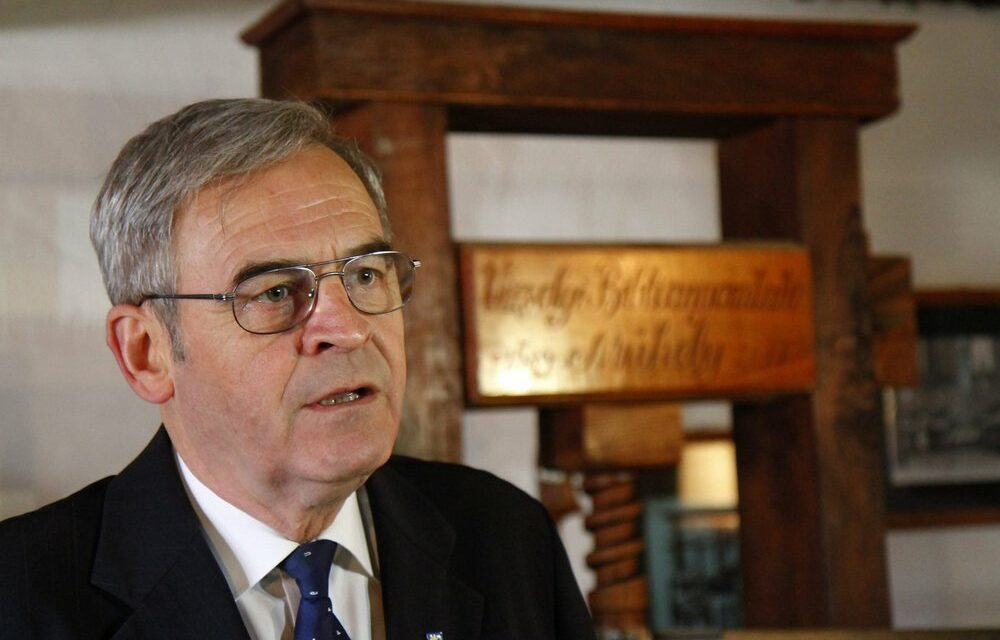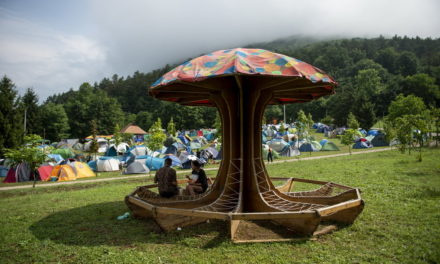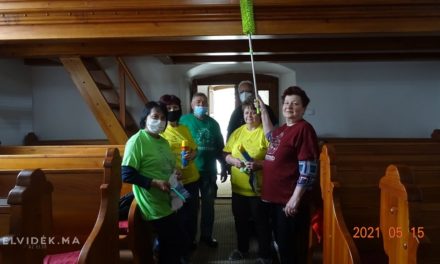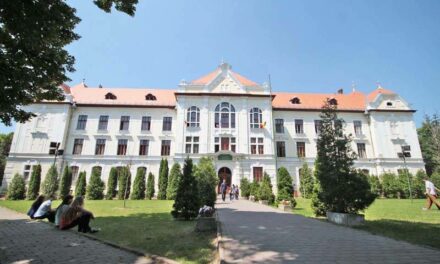Below is the speech of László Tőkés, the President of the Transylvanian Hungarian National Council, in Marosvásárhely, which was delivered at the commemoration and autonomy demonstration organized on Székely Independence Day, March 10, 2024.
We have been following the developments surrounding the organization of the Székely Freedom Day in recent weeks and days with intense attention. We were pleased to learn that the fine imposed for last year's holiday was overturned by the competent court, but we were shocked to learn that the gendarmerie, who was not authorized to grant permission for our commemoration and parade, is tying it to the stake again this year and continues to put unnecessary obstacles in the way of our noble event. . The repeated official rights-restrictive measures recall the period of Dorin Florea's bad memory regime. We can only hope that President Balázs Izsák, with the cooperation of lawyer Előd Kincses, was and will be able to prevent restrictions on the exercise of our freedom of assembly.
But rising above these humiliating and undignified circumstances that repeat themselves every year, let our commemoration speak above all about what and for whom we gathered: freedom and our Szekler martyrs who sacrificed their lives for it!
“Terrible time, terrible time! / Sándor Petőfi, rushing towards his doom in Féhreyegháza, wrote in the last poem of his life, as if anticipating the "rope era" following the drowning of the glorious freedom struggle in blood, the massacres of Haynau, the "Hungarian Golgotha", the dark years of the Bach era and " Székely Calvary", at the hallowed site of which we gathered this afternoon. In connection with this "terrible time", we rightly remember the blood shed by the innocent victims of the Madefalv disaster in defense of their freedom, or the fate of the persecuted and refugees of the Romanian invasion of 1916, or the black march of Marosvásárhely organized by the corrupt Romanian secret service.
"What shall we say to these?" - we can ask the Apostle. "If God is with us, who is against us?" he answers. "Who separated us from the love of Christ?
Misery, or distress, or persecution, or hunger, or nakedness, or danger, or weapons? (...) in all these we triumph exceedingly through Him who loved us" (Rm 8,31,35,37). Thinking about the bitter situation and the almost hopeless condition of the victims of the defeated freedom struggle and the "terrible times", posterity, we, today's Szeklers and Hungarians, do not think of them with a sense of pain or grief, but with a sense of pride and look up to them, who faced their trying fate undertake to set an example for us today and at all times. János Török Bágyi, Mihály Gálffi from Marton and Károly Horváth from Nagyvárad, and together with them their comrades, József Váradi and Ferenc Bartalis, who were executed in Sepsiszentgyörgy, were of the type of people who did not surrender to their tormentors even during the darkest reign of terror, but rose above their hopeless situation and united to continue their just struggle , instead of giving up and surrendering, they wanted to raise the fallen flag of freedom high again. "Our cause is not the cause of one person or one nation," János Török wrote before his execution, "but the sacred cause of our entire country, and even of several peoples and nations that are suffering under the yoke." Their living faith was not shaken by sadness or distress, or persecution, or danger. "To live in freedom, or to die boldly for it: / This is what they believed, professed and died for" - this is how Mór Jókai praised them in the lines engraved on their memorial plaque.
It is worthy not to be descendants of monsters, but to follow the example of our great predecessors in terms of their uncompromising, self-sacrificing behavior. All the more so, since our struggle to claim our rights does not involve life-threatening risks these days.
Jókai's memorial lines of a "legal, free and independent national position" . In our contemporary reading, this means the territorial autonomy of Székelyföld and the internal self-determination of Transylvanian Hungarians - in agreement with the Romanian nation, which is in the numerical majority.
The XIX At the end of the 20th century, the Romanian National Party led by Ioan Raţiu, the memorandumists of that time, also demanded autonomy for Transylvanian Romanians. We do the same under different circumstances. Today's Romania should not make the mistake of Hungary at that time by rejecting autonomy.
The criminalization of autonomy is a gross political mistake on the part of the Romanian political class stemming from biased anti-Hungarianism.
Transylvanian Hungarian autonomists should not be labeled as "extremists". We are neither extremists nor "separatists". Budapest is not "revisionist" either. The Hungarians do not threaten the territorial unity and integrity of our country in any way.
Prime Minister Marcel Ciolacu's anti-Hungarian and anti-Székely statements made during his recent trips to Székely are reminiscent of similar well-known statements by former Prime Minister Mihai Tudose and President Kalus Iohannis. The former directly threatened the people of Székely who insisted on displaying their national symbols with hanging.
The denial of the mere existence of Székelyföld is absurd, as it contradicts a geographical and historical reality, and on the other hand, it is a real attack on the regional and ethnic identity of the Székely people. Who would dare to deny the existence of Moldavia, Oltenia, Dobruja, Bessarabia and Bukovina?
To call the autonomy of Székelyföld "stupidity" and to classify the submission of our draft laws last December as a "toxic initiative" is an unforgivable insult to the Székely and Hungarian citizens of Romania - which we also reject.
The history of Gagauz autonomy also began with Chisinau declaring: "Gagauzia does not exist." Then the Republic of Moldova forced Gagauzia's autonomy into law.
We expect the same from the Romanian parliament: enshrine in law the territorial self-determination of Székelyföld, the three-level autonomy of the Hungarian national community in Transylvania - included in the program of the RMDSZ.
Romania should not be more pontifical than the Pope, i.e. President Macron, who, with an unexpected political opening, recognized Corsica's right to autonomy and initiated the start of negotiations for this purpose. The Catalan and Basque autonomies also serve as good examples for Romania. Thanking you for your constant support, I warmly welcome our Hispanic friends to our circle.
In preparation for our upcoming national holiday, on behalf of the Transylvanian Hungarian National Council and myself, I wish that we do not get discouraged, but draw strength from their example and bravely follow in the footsteps of our freedom fighter predecessors!
Source: Foreign Hungarian Press Service / MTVA
Cover photo: MTI Photo: János Vajda













